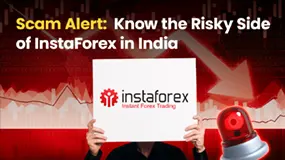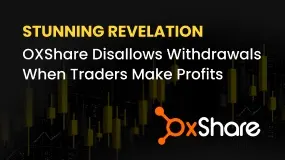简体中文
繁體中文
English
Pусский
日本語
ภาษาไทย
Tiếng Việt
Bahasa Indonesia
Español
हिन्दी
Filippiiniläinen
Français
Deutsch
Português
Türkçe
한국어
العربية
Meta Cracks Down on Scam Networks Targeting Brazil and India
Abstract:Meta removes over 23,000 scam accounts, using deepfakes and fake investment apps to defraud users in Brazil and India. Learn how to protect yourself from scams.

In a major anti-scam initiative, Meta removed over 23,000 Facebook Pages and accounts linked to fraudulent activities in March. These scams predominantly targeted users in Brazil and India, where the deceptive operations had become a significant concern. Meta revealed that scammers employed various strategies, including deepfakes, to impersonate well-known figures in finance, sports, and business. These fabricated endorsements were used to promote scam investment apps and gambling websites.
The fraudsters behind these campaigns were particularly adept at using high-profile personalities—such as popular finance influencers and cricket stars from Brazil and India—to falsely advertise fake investment schemes. By leveraging deepfake technology, scammers were able to convincingly mislead users into trusting these fraudulent platforms. Victims were often redirected to messaging apps where they were promised “investment advice” or led to fake websites that mimicked official app stores to download gambling apps.
In response to these tactics, Meta issued a public release, outlining its efforts to combat scam operations and warning users about common red flags to watch out for in online fraud. The company also highlighted its commitment to providing educational resources and safety tools across its platforms, including Facebook, Instagram, and WhatsApp, to help users avoid falling victim to scams.

Investment scams have become a widespread problem in recent years, often involving offers of high returns on non-existent assets such as cryptocurrency, real estate, or stocks. These fraudsters frequently target individuals through social media, emails, and phone calls, enticing them with promises of “exclusive” opportunities or access to so-called “coaching groups.” In many cases, victims are tricked into investing money in fake ventures, leaving them with no returns and lost funds.
Additionally, payment scams have gained traction, as criminals exploit online transactions to deceive people. One common tactic is the advance payment scam, where scammers pose as legitimate sellers on platforms like Facebook Marketplace. These fraudsters request payment before shipping an item, only to disappear once the payment is made. Another common scheme involves overpayment and refund requests. In this case, fraudsters claim to have overpaid for a product and ask for a refund of the excess payment. Once the refund is sent, the scammer reverses the original payment, leaving the victim with no money and no product.
Meta has been proactive in addressing these challenges, collaborating with various Indian authorities and organizations to strengthen online safety measures. Their ongoing efforts with the Department of Telecommunications, the Department of Consumer Affairs, and the Indian Cybercrime Coordination Centre aim to protect users from the rising tide of digital fraud.
Through its anti-scam initiatives, Meta has introduced tools such as warnings in Messenger to help users identify and report fraudulent activities. By working closely with law enforcement and providing resources to its users, Meta aims to curb the spread of these scams and protect individuals from falling prey to deceptive online practices.
As part of its mission to promote safety and awareness, Meta continues to update and refine its strategies, ensuring that its platforms remain safe for all users.

Disclaimer:
The views in this article only represent the author's personal views, and do not constitute investment advice on this platform. This platform does not guarantee the accuracy, completeness and timeliness of the information in the article, and will not be liable for any loss caused by the use of or reliance on the information in the article.
Read more

Scam Alert: Know the Risky Side of InstaForex in India
you should always Scam Alert in forex market. If something seems too good to be true, it often hides red flags behind it. Therefore, We reviewed InstaForex and reveal hidden risks associated with it. Whether you are an Indian trader, a potential user, or an existing client, it is crucial to understand the risks associated with InstaForex .

Going to Invest in FXCL? Move Back to Avoid Scams & Losses
Are FXCL officials calling you to make you a customer by promising a magical profit number? Stop! These officials follow this route to onboard customers and make them deposit at regular intervals. However, when you wish to withdraw, the officials will deny your request. This is nothing but a strong indicator of a scam forex broker. In this article, we will expose the wrongdoings of this Botswana-based broker.

Stunning Revelation: OXShare Disallows Withdrawals When Traders Make Profits
The revelation that OXShare disallows withdrawals to traders when they make profits is stunning but true. Many traders have complained about it on forex broker review platforms, but to no avail. They may receive assurances, but company officials do not live up to their promises. What’s more, these officials manipulate trades, forge vital details, and eventually scam traders who put their hard-earned capital on it. In this article, we will expose OxShare with proof. Read on to check them.

IBKR Lite Singapore Debuts with Zero-Commission US Stock Trading
Interactive Brokers launches IBKR Lite Singapore, offering zero-commission trading on US stocks and ETFs with global market access and flexible plan options.
WikiFX Broker
Latest News
Join WikiFX’s Agent Growth Event | Turn Your Success into a Global Achievement
Forex Trends Explained for Your Successful Trading Experience
Do Kwon Faces 130-Year Prison Sentence After Guilty Plea in $40B Crypto Collapse
Best 5 Low-Spread FX Brokers in India 2025
Major Pairs in Forex: Top Traded Currency Insights
What is ECN in Trading? A Simple Guide
SEC Settles California Trader with Over $234,000 Spoofing Scheme
What Is Forex Trading Fee? A Beginner’s Guide
Understanding UAE’s Financial Market Regulation: SCA and DFSA
Scam Alert: Know the Risky Side of InstaForex in India
Currency Calculator


